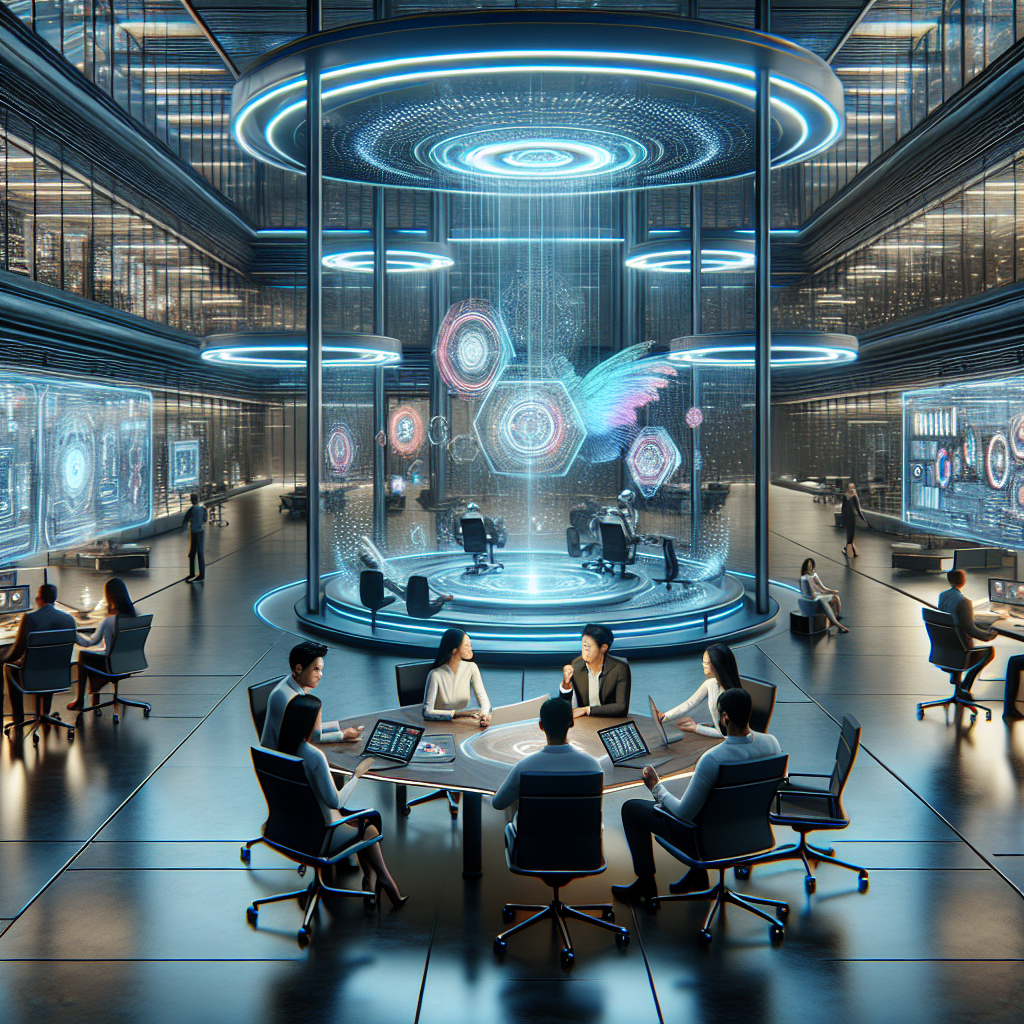The Transformation of Work in the Age of AI
The rapid evolution of artificial intelligence (AI) has sparked a revolution in the workplace, prompting both excitement and apprehension among professionals. As these intelligent systems become increasingly capable—handling tasks from coding to creative design—the looming question is: should we be worried about AI taking our jobs? This discourse aims to explore the profound changes the workplace is undergoing as AI technology advances, while also shedding light on both the challenges and opportunities that lie ahead.
A Profound Shift in Work Dynamics
We are undoubtedly witnessing a seismic shift in the nature of work similar to what occurred 50 years ago with the advent of personal computers. Just as the transition from paper-based tasks to digital work transformed our daily operations, AI is poised to redefine how we engage with our jobs. The workforce landscape is evolving, and many of the roles and skills that were essential yesterday may not hold the same importance tomorrow.
AI's ability to learn and adapt is unparalleled. It can analyze patterns, execute complex algorithms, and even generate creative content, often at speeds and efficiencies that exceed human capabilities. As AI tools become more adept at performing these tasks, jobs that traditionally relied on these skills may become obsolete or drastically altered. This transition is not merely a trend; it signifies a fundamental reconfiguration of how we think about work.
Embracing Change: Preparing for the Future
Acknowledging the changes that AI introduces, it is crucial for individuals and organizations to prepare for this transformation. Upskilling and reskilling are more important than ever. The worker of tomorrow must be adaptable, possessing the ability to navigate a landscape where traditional roles are supplemented or replaced by AI-driven processes. This requires a proactive approach to education and professional development.
The focus should not solely be on acquiring technical skills but also on enhancing soft skills—creativity, critical thinking, and empathy. These human-centric abilities cannot be easily replicated by machines and will be invaluable in a future where collaboration with AI becomes commonplace. For example, a marketing manager who leverages AI-driven analytics tools will still need to infuse that data with human intuition to craft compelling narratives that resonate with audiences.
The New Era of Jobs
While concerns about job displacement are valid, it is also essential to recognize the new job opportunities that AI presents. Historically, technological advancements have resulted in the creation of new roles that did not previously exist. Just as the rise of digital technology gave birth to fields such as social media management and data analytics, AI has the potential to foster entirely new career paths.
Emerging roles may include AI ethicists who ensure that AI systems are developed and deployed responsibly, or AI trainers who refine machine learning algorithms by providing quality data and feedback. Additionally, as businesses seek to integrate AI into their operations, demand for professionals skilled in AI project management and implementation will continue to grow. Rather than fearing the future, professionals should embrace it, seeking out opportunities to be part of the AI revolution.
The Role of Organizations in Workforce Transformation
Organizations also play a crucial role in navigating this transformation. Leaders must foster an environment that encourages innovation and lifelong learning. Investing in employee training programs will be essential to equip the workforce with the skills necessary to thrive in a rapidly changing environment.
Moreover, companies should prioritize open communication regarding the utilization of AI within their operations. Transparency can alleviate employee fears surrounding job security and foster a culture of collaboration between humans and machines. When employees understand how AI tools will enhance their work—rather than replace it—they are more likely to embrace these changes.
To further support this transition, collaboration between educational institutions and industries is critical. By aligning curricula with the skills needed in the workforce, future generations can enter the job market prepared for the challenges and opportunities that AI technology presents.
Conclusion: A Future of Collaboration and Growth
In summary, the rise of AI is changing the fabric of work as we know it. While there are valid concerns about job displacement, the reality is that AI also brings opportunities for growth, innovation, and collaboration. By embracing change, upskilling, and fostering a culture of adaptability, both individuals and organizations can navigate this new era with confidence.
As we look ahead, it is essential to remain agile and open-minded, ready to seize the opportunities that arise and redefine the meaning of work in an AI-driven world. Change is inevitable, and our ability to adapt will determine our success in this exciting new chapter.
For more information on the evolving nature of work due to AI, you can explore these resources:
By understanding the dynamics of this transformation, we can work collectively towards a future where humans and AI thrive together.
Related News
- The AI Jobocalypse: Embracing the Inevitable Shift in the Workforce
- The Dawn of AI Firms: A Transformational Shift in Business Dynamics
- AI: The Thrilling Frontier of Human Ingenuity and Technology
- The Imperative of Upscaling the Workforce in AI: Bridging the Technological Divide
- The Technology Revolution: Navigating the AI-Driven Future
